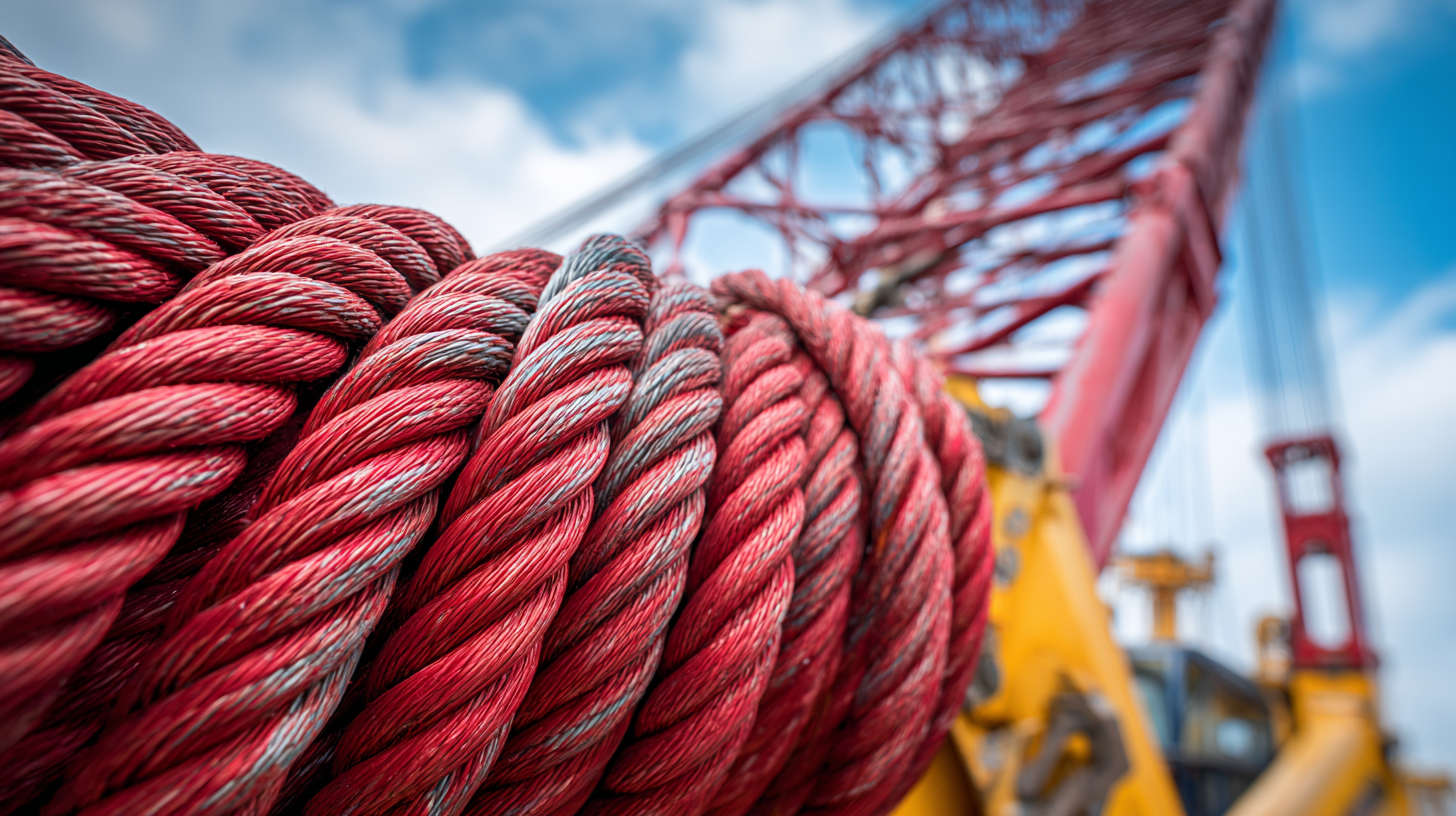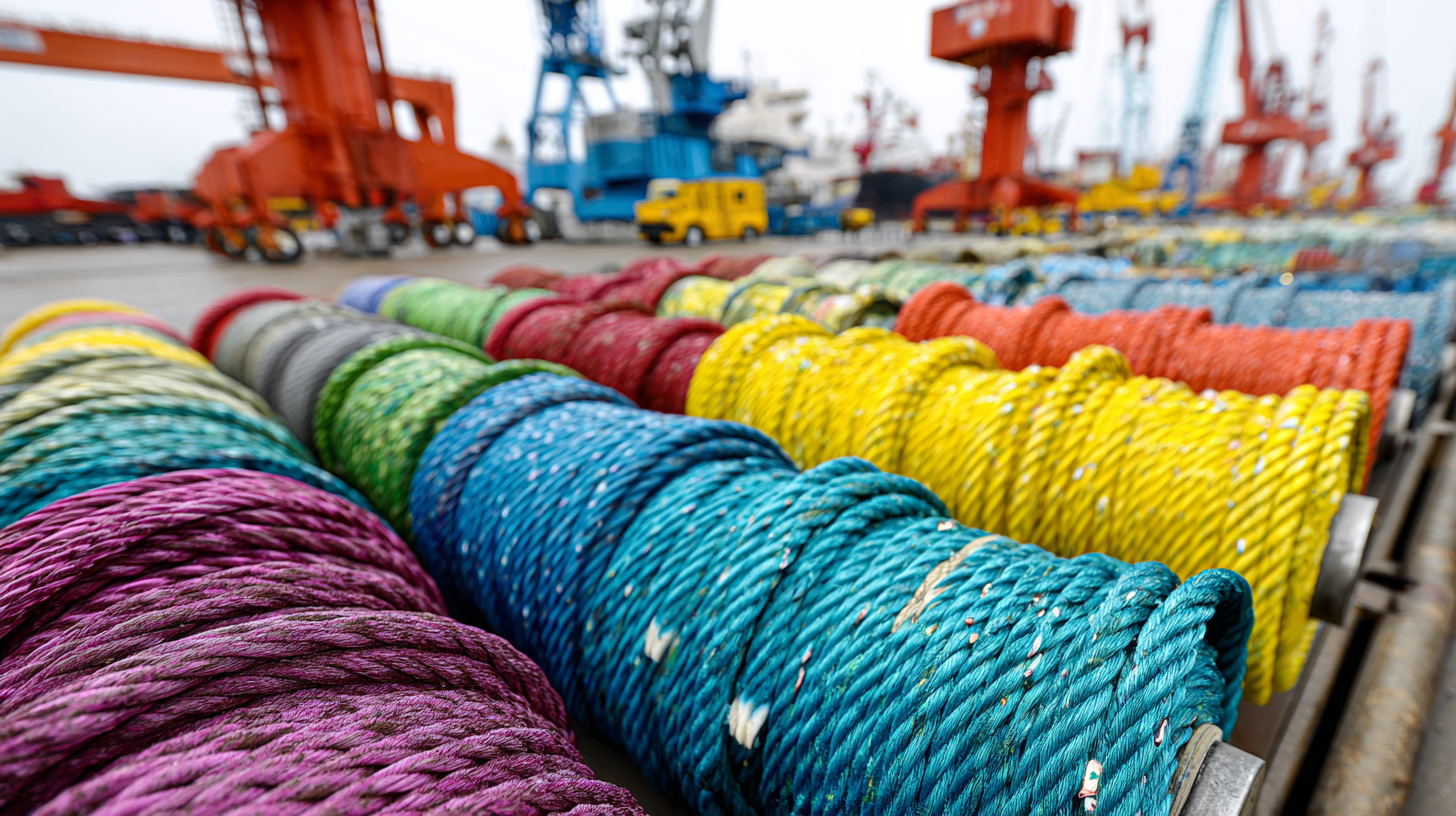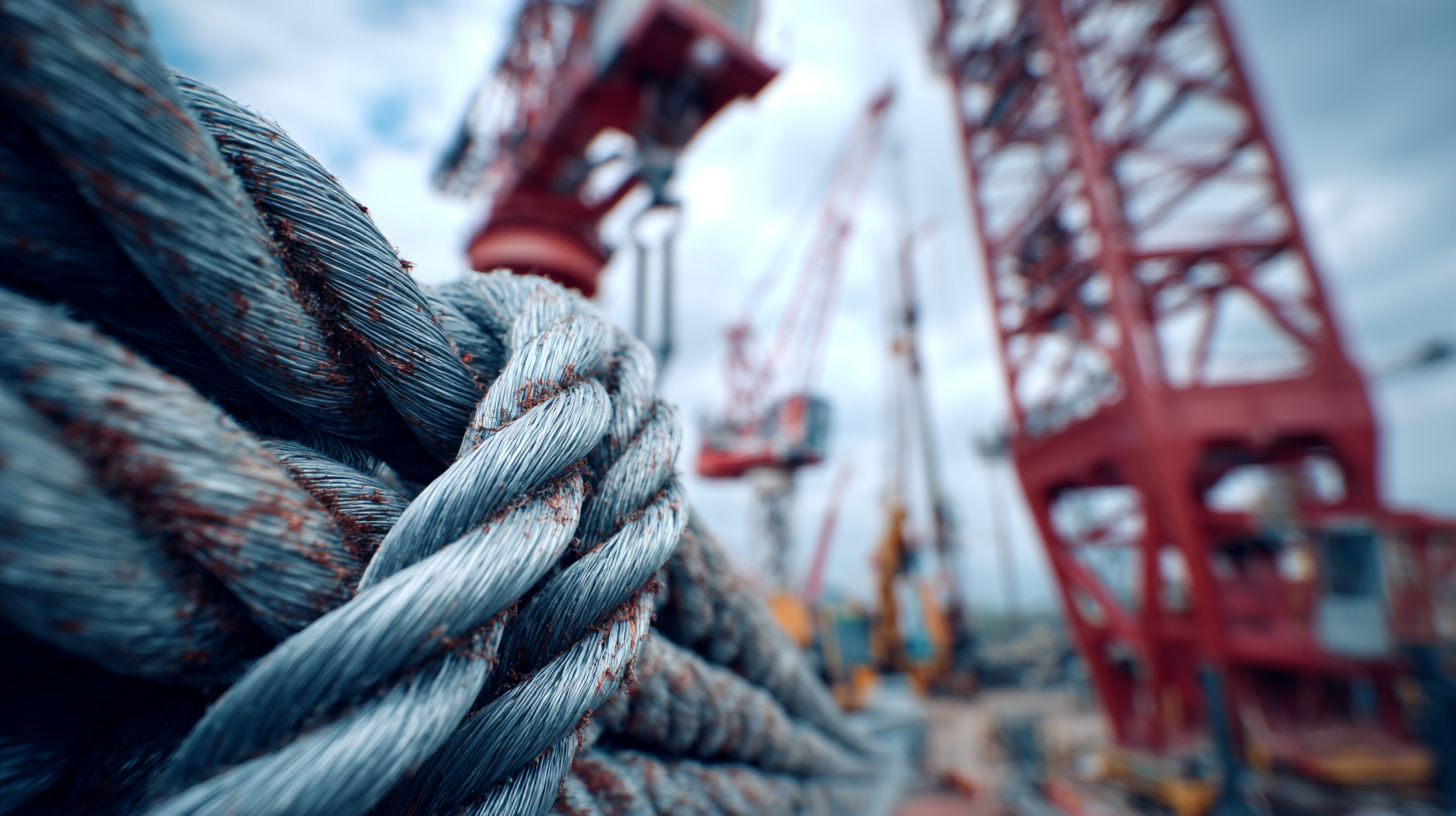
Leave Your Message

In the construction industry, the utilization of high-quality ropes for tower cranes is pivotal for ensuring safety and efficiency on job sites. According to a recent market analysis by Technavio, the global market for construction equipment, including tower cranes, is expected to grow at a CAGR of about 5% from 2023 to 2028. Within this context, selecting the right suppliers for ropes for tower cranes is critical, as the quality of these materials directly impacts both operational reliability and worker safety. Poorly fabricated ropes can lead to accidents, project delays, and increased costs, underscoring the importance of establishing partnerships with reputable suppliers. In this ultimate guide, we will explore effective strategies for identifying and evaluating quality suppliers, ensuring that your operations are supported by the best products available.

When searching for quality suppliers for tower crane ropes, it’s vital to identify the key qualities that set the best apart from the rest. First and foremost, a reliable supplier should have a proven track record in the industry, showcasing experience and expertise in manufacturing ropes specifically designed for heavy-duty applications. Look for suppliers that can provide certifications and test results that confirm their ropes meet international safety standards. This not only ensures the physical integrity of the ropes but also contributes to the overall safety of construction operations.

Another crucial quality to consider is the supplier's commitment to innovation and technology. In the highly demanding field of tower cranes, the materials and techniques used can greatly impact the performance and durability of the ropes. Suppliers who invest in research and development are more likely to offer advanced products that can withstand extreme conditions while maintaining efficiency. Additionally, strong customer service and support from suppliers can enhance your partnership, ensuring timely delivery and responsive communication, which are essential for smooth project execution. By focusing on these key qualities, you can secure a supplier that meets your business needs effectively.
In the rapidly evolving landscape of construction, the integration of technology has become a cornerstone for sourcing high-quality tower crane ropes. The switch from traditional wire ropes to synthetic alternatives is gaining traction due to their superior strength-to-weight ratio and greater flexibility. According to industry reports, synthetic ropes can provide a lifting capacity improvement of up to 30% while reducing the overall system weight, which is paramount for the efficiency and safety of crane operations.

One effective strategy for sourcing these advanced ropes involves leveraging digital platforms that connect suppliers and manufacturers, allowing for real-time comparison and quality assessment. Utilizing advanced analytics can also help identify trends and leading suppliers, optimizing procurement decisions.
Tips: When sourcing tower crane ropes, consider the material specifications and performance ratings. Ensure that the supplier provides detailed testing data and certifications. Regularly consult with industry experts to stay updated on the latest innovations in rope technology. Engaging in strategic partnerships with technology-driven suppliers can further enhance your sourcing process, ensuring you secure the best products available.
In the crane industry, establishing successful partnerships with suppliers is crucial for ensuring the quality and reliability of essential equipment such as ropes. One compelling case study is the collaboration between a leading tower crane manufacturer and a specialty rope supplier. This partnership not only elevated the performance of their cranes but also achieved a 20% reduction in maintenance costs due to the high durability and low wear rate of the supplied ropes. According to a report by the International Cranes and Specialized Transport magazine, quality suppliers can increase operational efficiency by up to 30%, showcasing the immense value of strategic supplier relationships.
Another example can be seen in a project where a construction company partnered with a local rope manufacturer to source high-strength synthetic ropes for their tower cranes. By leveraging the manufacturer’s expertise and understanding of the specific demands of their projects, the construction company saw a significant decrease in downtime. A study conducted by the Construction Industry Institute indicates that effective supplier partnerships lead to a 25% improvement in project timelines. These examples underline the importance of fostering strong supplier relationships in the crane industry, ultimately driving efficiency and project success.
As the construction industry evolves, the demand for high-quality crane ropes is on the rise. According to a recent report by MarketsandMarkets, the global market for crane ropes is expected to grow from $1.1 billion in 2023 to over $1.5 billion by 2028, reflecting a compound annual growth rate (CAGR) of 6.3%. This growth is driven by increasing urbanization and infrastructure development, which necessitates the use of robust lifting equipment. Consequently, suppliers are under pressure to deliver superior products that meet rigorous safety and performance standards.
In this dynamic market, understanding the supply chain trends is crucial for sourcing quality crane ropes. A comprehensive analysis by Grand View Research indicates that advancements in manufacturing processes and materials technology, such as the use of synthetic fibers and wire ropes, are reshaping procurement strategies. Suppliers are increasingly focusing on sustainability and innovation to stay competitive. As demand shifts, organizations must prioritize partnerships with suppliers who demonstrate not only reliability but also an openness to adopting new technologies, ensuring that they can navigate the complexities of the evolving crane rope supply landscape effectively.
| Supplier Location | Rope Type | Material | Load Capacity (tons) | Average Lead Time (days) | Market Trend |
|---|---|---|---|---|---|
| North America | Synthetic Rope | Polyester | 15 | 30 | Increasing Demand |
| Europe | Wire Rope | Steel | 20 | 40 | Stable Growth |
| Asia | Fiber Rope | Nylon | 10 | 25 | Emerging Trends |
| Australia | High-Performance Rope | Composite | 25 | 45 | Growing Interest |
When it comes to selecting the best ropes for tower cranes, the importance of finding quality suppliers cannot be overstated. The first step in this process is to establish a clear set of criteria for evaluating potential suppliers. This criteria might include factors such as product quality, compliance with safety standards, and the supplier's reputation in the industry. Engaging in thorough research, including reading reviews and gathering testimonials, can help you gauge a supplier’s reliability and commitment to quality.
Additionally, don’t overlook the significance of supplier experience and expertise. Suppliers with a proven track record in the industry often have a better understanding of the specific requirements for tower crane applications, ensuring that their ropes are designed to withstand the unique stresses involved. Consider conducting factory visits or requesting samples to assess the supplier's production methods and materials firsthand. This proactive approach not only helps in finding high-quality ropes but also builds a solid foundation of trust between you and your supplier, promoting long-term collaboration.